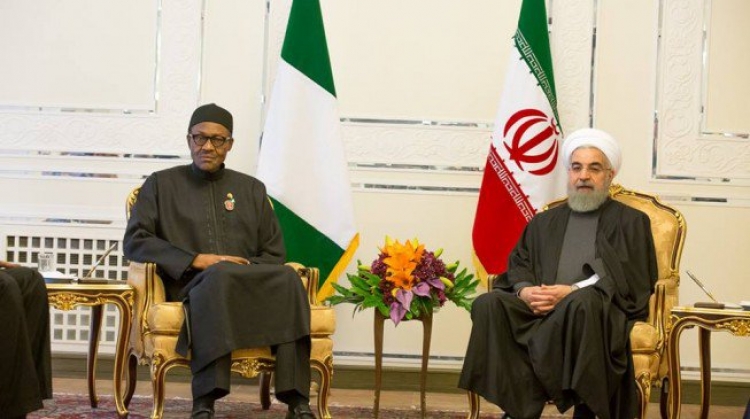There are no products in your shopping cart.
| 0 Items | £0.00 |

 NIGERIA and Iran have signed a bilateral agreement that involves the establishment of a bi-national commission to enhance trade investment and technology transfer especially in the gas sector.
NIGERIA and Iran have signed a bilateral agreement that involves the establishment of a bi-national commission to enhance trade investment and technology transfer especially in the gas sector.
On the sidelines of the recent fifth Summit of Gas Exporting Countries Forum in Malabo, Equatorial Guinea, President Muhammadu Buhari and Mohammad Nahavandian, Iran's vice president for economic affairs, signed an agreement to this effect. Their pact will promote trade, investment, agriculture and technology transfer, among other things.
President Buhari said he was impressed with the speed of transformation of the Iranian oil and gas industry from what it used to be when he served as Nigeria’s petroleum minister in the 1970s. He then asked to be given up to second quarter of 2020 to work out the modalities of the bi-national commission.
“I will work very hard towards the joint commission and we will go back and identify sectors of common interest. In particular, we are interested in how you utilised your gas, with 95% of your national population wired to gas.
“The evolution of our gas industry is too slow and we are still flaring gas. I will work with you on how to harness and utilize our gas. I am very impressed,” President Buhari added.
According to President Buhari, Iran also flared gas in the 70s but now the fires had all been put out and he expressed optimism that Nigeria would soon attain the same feat. He told Mr Nahavandian, that if the blueprint he left behind as petroleum minister had been followed, Nigeria would have had 12 liquefied natural gas trains by 1983.
President Buhari said: “Instability and partisan politics thwarted all that, leaving us with just six, and the seventh we are now working on. We would have been earning more from gas."
He also extolled the Iranians for attainments in electricity generation, agriculture and the petrochemical industry. In addition, President Buhari commended the Iranians for defeating Isis in Iraq and Syria, saying the dispossession of the terrorists of their oil wells meant that they had lost access to resources used to support Boko Haram in Lake Chad sub-region.
Mr Nahavandian replied: “A lot can be done. We can do miracles. We have the vision.”
He suggested four major areas of economic cooperation included petrochemicals, power, irrigation agriculture and industry. In addition, the Iranian vice president also offered cooperation in counter-terrorism, citing the routing of Isis in Iraq and Syria as major contribution to the global anti-terrorism effort.